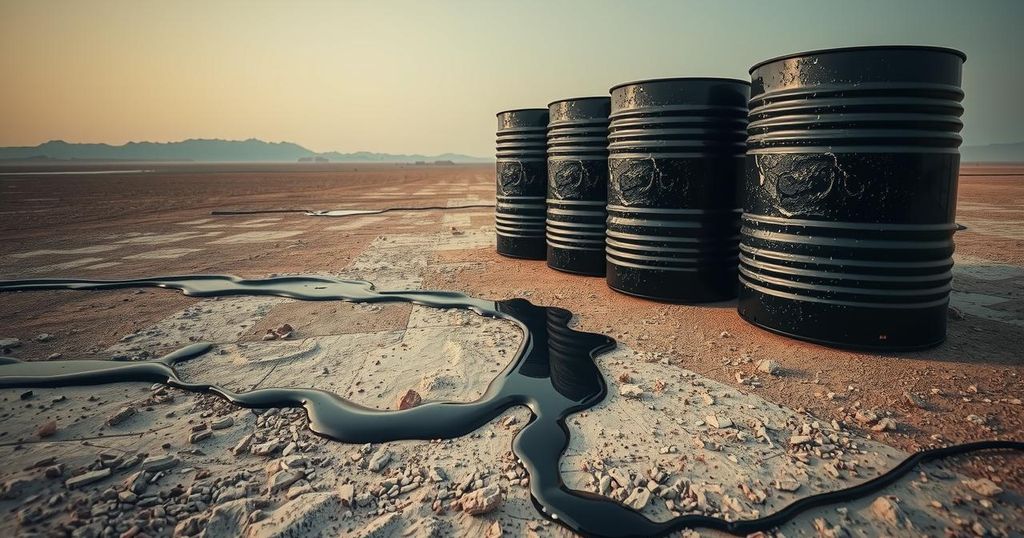Fuel smuggling in Iran is an extensive crisis, with 20 to 30 million liters disappearing daily, generating over $30 billion annually. The regime’s structures benefit from this illicit trade, making reform difficult. Key figures within the government acknowledge the crisis, but significant resistance exists against efforts to implement transparency and accountability, revealing a deep-seated network of corruption that persists.
Fuel smuggling poses a significant economic crisis in Iran, with estimations of 20 to 30 million liters disappearing daily through systematic operations. These activities are not the result of minor criminals but rather a sophisticated network that benefits the regime by funneling profits to influential institutions and individuals within the government.
The magnitude of this problem was underscored in a recent impeachment session where Iran’s Minister of Economic Affairs and Finance revealed that fuel smuggling generates over $30 billion annually, with diesel smuggling alone resulting in illicit profits exceeding 500 trillion tomans each year. This amount far surpasses the annual subsidy for Iran’s entire populace, indicating the dire economic implications of this corruption.
Additionally, President Masoud Pezeshkian acknowledged that smugglers manipulate pricing, selling subsidized diesel for exorbitant amounts on the black market. Despite efforts by the Chief Justice Gholam-Hossein Mohseni-Eje’i to combat this issue, progress has been minimal over the years, reflecting the depth of the crisis.
Energy expert Mahamoud Khaghani pointed out the entwined relationship between the smuggling network and the regime’s power structure, referencing former President Hassan Rouhani’s recognition of the few individuals who control Iran’s financial systems, thereby thwarting economic reforms. Attempts for budget transparency faced fierce resistance from those benefiting from the illicit activities.
Khaghani drew parallels between Iran’s situation and Mexico’s oil cartel dominance, asserting that Iran’s oil mafia operates similarly, complicating the fight against corruption. He highlighted the complexities involved, as unauthorized smuggling pipelines elude recognition from the Refining and Distribution Company, pointing to possible complicity among high-ranking officials.
In conclusion, confronting the entrenched smuggling operations in Iran seems improbable under the current regime. Even Pezeshkian, who advocated for transparency, finds himself constrained in addressing the problem. The regime’s reluctance to dismantle the smuggling network denotes a deeper issue of corruption ingrained in the political and economic landscape of the country. Without reform, the Iranian population will continue to suffer from economic mismanagement and pervasive corruption.
The situation regarding fuel smuggling in Iran reveals the involvement of a sophisticated network that benefits the regime and highlights the failure of governmental officials to address this critical issue. The connection between corruption and power is deeply rooted within the system, making meaningful reform a challenging endeavor. Hence, the Iranian populace continues to face the repercussions of such systemic malfeasance.
Original Source: irannewsupdate.com




